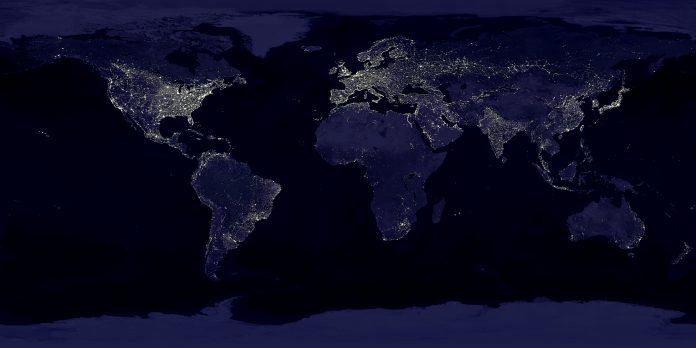Henry Jones spoke to Nishat from Open Access Government about mental health platform Big White Wall (BWW), in light of the oncoming UK Government White Paper on Online Harms
Henry Jones is the CEO of BWW, a social impact enterprise which is fighting to address the necessity of online platforms, to help people with their mental health problems before they worsen.
Whilst generally, young people are aware of the available help via the NHS or a Government programme: they are also wary. The formality of the process, the lengthy waiting time, and the imagined lack of control over what happens next are mixed in with a hefty dose of stigma about being mentally ill. Whilst this stigma is steadily being dissected, there is a lot of work ahead of us.
If they do believe their mental health is that bad, they may have to wait for a long time before seeing a therapist. If they doubt themselves until intensifying symptoms become unignorable, that wait becomes excruciating, often hopeless. If they have a secret their parents can’t know, they will often never risk attaining help.
These limitations keep people from seeking real help. Where do we really go for comfort when we are hurting?
The internet.
Friends through messaging or Skype. Online forums where anonymity helps open discussion. Questions typed into Google when human interaction feels too draining.
Technology and young people as a combination is often regarded with fear. You need only look as far as the Instagram phenomenon (idealising the barrage of photoshopped bodies that aren’t real, causing eating disorders and multiple complexes) to understand where this fear comes from.
But the internet is going nowhere.
Big White Wall has an approach to mental health and technology that opens up mental health prevention possibilities via an immediately available therapy. Below, their CEO Henry Jones discusses with me some of his ideas for the future of mental healthcare.
-
Thanks for taking the time to talk to us today, we’re very interested in the things you’re doing. Firstly, I want to ask you what BWW is doing in the realm of mental health?
“We provide two fundamental offerings, and some overlapping services in the middle. One of our core offerings is a peer-to-peer, anonymous 24 hours a day presence monitored by professionals. It is a platform for people to share and support each other in the community, around mental depression and anxiety.
“So that’s the prime offering.

“They get the opportunity to go onto a community and go on to talk and engage with other people in a very safe environment. And help each other really, with the added support of our wall guys. They are professionals put there to make sure that it is safe and secure and nothing inappropriate happens.”
2. That’s interesting. Because talking about the digital landscape right now, I know you focus on the dangers of online content, so what do you think your greatest fears are for mental health in this climate?
“Look, I am a strong believer in technology being used for good or for bad. And I think there’s a lot of press around technology being used for bad. There is a problem, it is building. I heard someone talk about it the other day, the way we’ve in the last couple of years been talking about sugar and the problems it causes around obesity has really had a huge impact on our culture, our people and our society. And I think that online, unless done properly and managed and safely done, could absolutely be the next issue.
“It exposes our youth to a whole lot of issues, that needs to be controlled and managed. So, my biggest fear is that, having been in the technology space for the last 20 odd years, that impact is has becomes all-negative, and not good. And that it is not used in a way that we can really benefit from it.
my biggest fear is that, having been in the technology space for the last 20 odd years, that impact is has becomes all-negative
“So I think one of the key things is to talk about the challenges technology provides, the opportunity on the other side is that it has the amazing ability to reach and give access to a lot of people and if you look at the challenges in national health at the moment, the challenges are that there aren’t the tools, facilities or resources to reach everyone who has mental health issues.
“So that’s where technology can play an amazingly positive impact in creating reach and access if done correctly. It isn’t the technology that’s the problem, it’s the way it is used, the way it is guarded, the way it’s regulated. I think my biggest thought is, we lose control of this, and it creates a lot of damage, which we don’t start addressing early enough, if you ask me.”
3. In terms of regulating it, what do you think should be the first step? You said your greatest fear was losing control, so how do we keep control? Do we intervene earlier, do we make people aware of what can happen?
“I think there’s a path for many different things.
“I think there’s a role for education, you know how we educate our young people around the impact of social media, the good and the bad, how they manage that themselves. I do think there is a role for regulation, you know how do we make sure really inappropriate materials are not provided to children?
“You know I have young children, and it terrifies me what they may come across. I think there probably is, either for the industry to self-regulate or for the government to regulate.
“I also think though, that there needs to be alternatives. So, I’m a strong believer in our youth today. Actually most of the population, when they have a question or query, about anything these days they typically go online to get an answer.”
Straight to google.
“Yeah, straight to google, or straight to a community, or whatever. One of the things we talk about in the paper is we’re not going to change that behaviour. And it is crazy to think that we are.
“So, what you want to do, is to provide environments that are, when people go online, they know, if I’ve got a mental health issue, I want to go onto a community that is built to cope with that. If you see what I mean. So actually, instead of trying to say this is all about regulation it’s also about giving people options.
“One of my visions for BWW or a service like that, is that by the time my eldest son gets to 16 I can say to him, look if you go online and if you’re suffering from depression or anxiety go online, but go here. It is not the responsibility of the likes of Facebook and Instagram, to ultimately be the answer to depression and anxiety.
It is not the responsibility of the likes of Facebook and Instagram, to ultimately be the answer to depression and anxiety
“They’ve got to make sure it’s safe and secure and all of those reasons but that’s not what they’ve been set up for. I think that’s partly education, partly regulation. But also giving people access to the online environments that are set-up specifically to deal with those challenges and questions. And I think that’s going to be crucial as we go forward.”
4. So you’ve noticed these platforms aren’t equipped to do these things, and you’re filling in a gap that needs to be filled?
“Yeah, that’s not what they’ve been built for. It’s not their business model and it’s not what their drive is. I think that we should be using technology to create things that are specifically set up to deal with this. And are in and run and managed in a model, in a way that youth will want to use if you see what I mean.
“It’s about encouraging people to know that you don’t go to your grocery shop if you’re feeling ill you go to your doctor. You know is the same online. You say if you’re not feeling well, you don’t go here you go there.”
5. And how old is your son so we have a timeline on these ambitions?
“Thirteen. Three years.”
6. Moving on from the concept of being online, I wanted to discuss the NHS long term plan. The specific number that the Government promised by 2023 is £2.3 billion a year. I want to know if you think that’s enough, too little?
“I’d love to be able to tell you it’s enough. But what I will say is I think it’s great that they are, putting serious allocation to it. I think this is going to become a bigger and bigger problem and it is not going away. I think the challenge with the NHS plan is that probably underestimates how big this problem is going to be. Their predictions I think will be wrong in terms of how many people need help. Even if their models are right, I think that people fall down in terms of that they may have budgeted for the known problems but it’s bigger than they predict.
“I also think they are looking at very traditional methods that provide a bit of technology. But I think they’ve got to rethink the model. I think the biggest problem is the scale of the issue and trying to solve it the same way as before with a little bit of technology in there is not going to do it. I think they also don’t address the issue of things like, stigma, so allowing people anonymous safe environments to go to. We know, we see a lot of people who come to the BWW have never shared their problem with anybody else.
I think they also don’t address the issue of things like, stigma, so allowing people anonymous safe environments to go to.
“And a lot of the reasons behind that are stigma, maybe it’s a youth thinking about their sexuality, maybe it’s a religious issue or maybe they can’t share it with someone. I don’t think there is enough understanding about how youth need to interact with metal well-being. were gonna provide people more access to more people. Well a lot of people don’t want to talk to someone without being anonymous, they want to go to a community not talk to someone one to one.
“There’s not enough of that how do youth want to interact with us, it’s more like, how do we want to interact with youth?”
“What they should be saying is let’s create an environment the youth want to interact with as opposed to one we want them to interact with.”
maybe it’s a youth thinking about their sexuality, maybe it’s a religious issue or maybe they can’t share it
8. So is Big White Wall that environment for youth interaction with mental health treatment?
“It is an environment. At the moment, we have 50 universities on it, we have access to over half a million university students have access to the platform. I think it is an amazingly powerful thing, the impact it’s having on people’s lives. When you get quotes of people basically saying, because of this I was able to come off my drugs or this is the first time I’ve ever really opened up to someone about my problems.

“We talk about how, your next therapist could be the person sitting next to you on the bus. That help is coming from other people who are experiencing the same thing. And is not a cost to the National Health Service, it is people helping people. It goes back to the very basis of the value of community.
your next therapist could be the person sitting next to you on the bus
“And I think that is an amazingly powerful thing to do. We always liken it to the story of, these days if you’re a student, I haven’t been a student for a while, you arrive at university and we see a peak in activity from our university students over freshers week. This is not surprising. You’ve got students arriving at university, their first time away from home maybe. They’re looking at Facebook, and on Facebook everyone is saying oh look what a wonderful time, I’ve been at this party and I’ve been at this party.
“And they’re sitting there thinking god my life is awful.
“And they’re sitting there thinking god my life is awful.
“You know, the ability to go on something like the big white wall and say, this is how I am and I’m feeling awful. Then a load of people to come back and say don’t worry. Same thing happened to me, this is what I did about it, you’re not alone. We talk about early intervention, and there was an article today talking about how early intervention is key which we believe in.
“But you can imagine that student, if they can get early intervention, and go oh I’m okay. I’ll go back to my life, I’m not the only one.”
It doesn’t escalate.
“Yeah, or they sit there, and in 13 weeks they go to their doctor who then tells them you’ve got to wait another 13 weeks before you can see someone. And you see two very different paths happening, and so I think again you asked about the NHS white paper. I think there is not enough around really catching people early.
“And I mean catching people at that moment where it can go both ways: I’m not alone other people are like me or if I can get my head down I can get over it. I can go to the union and do this or here are some other great ideas. Or you’re sitting there going, I’m just going to sit, and this will grow into the point where I do need therapy and I do need saving, as opposed to catching before I fall.”
this will grow into the point where I do need therapy and I do need saving, as opposed to catching before I fall.
9. You said earlier there’s a lot of stigma around mental health and you have described BWW like this. It sounds to me like BWW is so far removed from the NHS, and doctors, and waiting rooms. So are people are able to access it without having that same sense of guilt or shame maybe?
“And they’re anonymous. So, they can go on and they don’t have to say who they are. They are in a very safe world talking to people like them who are suffering through the same thing. But no-one knows who they are so they can talk openly and frankly. There’s no risk that it will get back to their employer, their university, their parents, if they don’t want it to.”
no-one knows who they are so they can talk openly and frankly. There’s no risk that it will get back to their employer, their university, their parents
10. So, moving on a little bit from that, mental healthcare policies in this day and age. Do you think our government as it stands is doing enough? I know we’ve already spoken about what the NHS has planned, but do you think there’s enough awareness being raised by the government as a whole? Or are we moving towards the digitalisation that you are describing?
“Talking about governments, I don’t think anywhere is doing a great job on this. And I think it is because it is becoming such a problem. So, you know, we work in Canada and I think everywhere you see this becoming more and more of an issue. So, I think the government are good in that they’ve identified it as a critical issue, I think that they need to throw the net wider. And to be more bold in thinking about how we solve it.
“Because I think the traditional approaches, the traditional attitudes, won’t necessarily solve it. I think they either do that now or it will become such a big problem it will be forced on whoever is in government. But this isn’t just the government, it’s the medical community, employers, everyone needs to say hang on, I think we’ve got a big problem coming.
“I’m just not convinced people are being bold enough in their thinking.
“I don’t know if it’s government, but technology is part of the solution, alongside education, regulation. But I think people are trying to do it, and it’s not an easy thing to do. I could sit here and say oh I could do it so much better but it’s an immense challenge. It’s going to need a lot of thought, some brave choices. I don’t want to be too critical of the government, I don’t think anyone has particularly got a handle on it at the moment.”
11. Yeah, being online, having mental illnesses: these things are new in how they’re being combined. In relation to that, can you think of anyone else working to fight the issue of mental health treatment access?
“I think there is a couple of organisations that we’re talking to, that is focused on youth and then there’s another organisation focused on medicine, that are really thinking about the care pathway. And really starting to think about how you can leverage, community technology and faith and secure environments.
“So, if you get people helping each other, it’s a really scalable solution that’s cost effective but can help you reach ten times more people. You think about the BWW if you have a six-hour period. In that six hours you could have 5000 people on the community but only one professional overseeing that group. So that’s highly scalable. The ones who are really thinking about how to get that scalable solution and get a lot of people early, will not take a huge amount of capacity but also save the capacity that’s needed in the NHS system upstream. So, there’ll be less people who need therapy and treatment.
“I think those organisations are making the right decisions. They’re thinking about scale and technology. My hat goes off to them. You talk about metrics and things like that, I think we’ve got to figure out a way to measure the impact of early intervention.
“Cause I think the measurements going through the NHS now are all around, how many people are we giving therapy to? And what is our cure rate?”
Yeah, whilst an undocumented mass is there suffering quietly.
“Yeah. What you want to do, is we don’t want them to get to therapy. And that’s a hard thing to do. I think there are people who are starting to realise that. I think the NHS is probably starting to think like that and we have some great examples where we work with National Health Trusts where we are absolutely doing that.
“They’re absolutely realising they need to be able to get to people early and give them care that’s beyond giving someone brochures after they walk into a doctor’s surgery, the idea of ‘you’re not that ill, just read this.’”
they need to be able to get to people early
12. So would you also say, to clarify an earlier point, that depression is the main focus of BWW?
“I would call it anxiety and depression. I think we also provide a group of therapists, we provide live text, audio and visual therapy. So, it’s an alternative way to deliver therapy and that’s very complementary to The Improving Access to Psychological Therapies (IAPT) programme in the NHS. It gives them choice. If they can’t travel, they can do it form their home. Our hours are 7-11 every week. If they can’t get out of work, they can do it after work. They can do it over the weekend.
If they can’t travel, they can do it from their home.
“But we’re really focused on anxiety and depression. The support network is what they call stage 1, but it’s about catching people before they fall. But also providing wraparound support for people when they do fall. Maybe they’re between therapies but they need community.”
13. Because you have a focus on anxiety and depression, do you think that your services can be extracted for other mental illnesses?
“Yeah, I mean we talk about anxiety and depression, but you know we’re just giving out therapy for long term conditions. It may be caused by an illness, a student going to university, an addiction or whatever. Anxiety and depression come for many different reasons and we’re there to support that. I’m sure that the power of community and safety and anonymity can help in many ways.
“If people are worried about an addiction problem, maybe there’s ways it could absolutely be used for them. We’re a social impact business. Our backers back us because they want to support something that does good but doesn’t rely on charity. Our core mandate is to access as many people as possible in a sustainable way.
“My goal is as I said, to make sure as many people as possible have access to this platform so they can make their lives better. We basically believe we have enough to deal with in anxiety and depression, so that’s where we’re going to Major. All the signs are saying this is growing and growing: we want to be part of the solution that helps lessen the impact of it on peoples lives, employers the community and the cost to the NHS.”
“It’s been really good to talk about it.”












—- with a hefty dose of stigma about being mentally ill.
We are trapped in time, caught in a vortex, where we have to insist “there is a stigma” to having a mental illness. Government insists, education insists, the voice on the street insists, even royalty insists.
Is there any escape from this vortex?
Hi,
I understand that it can seem overwhelming to discuss the narrative of mental health.
If we want to escape this ‘vortex’, we need to remove stigma from mental health conversations. If we became silent about existing stigma, how would that help get rid of it? If we stop acknowledging something, it continues to exist.
Thank you for your comment,
Nishat